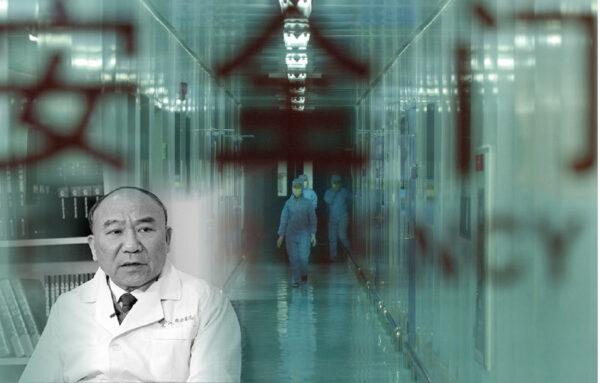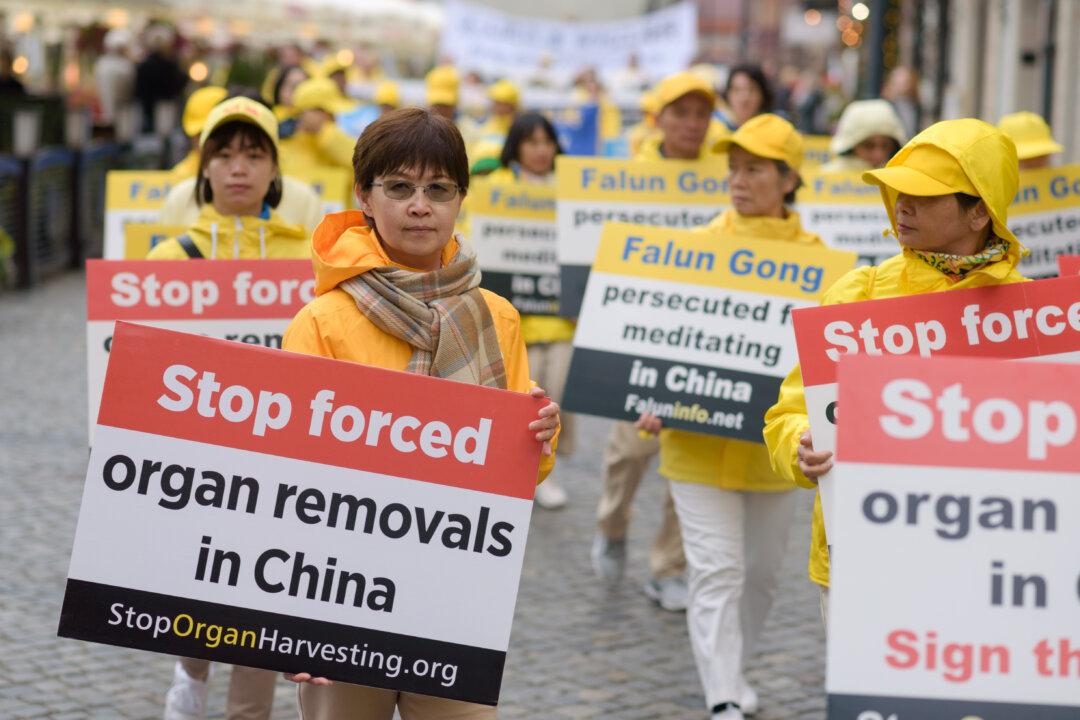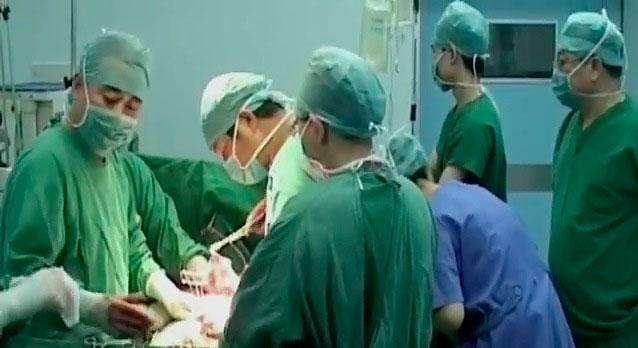The University of Oxford helped design training that was attended by Chinese doctors with alleged links to China’s state-sanctioned forced organ harvesting, it has emerged.
It comes as the Chinese regime faces accusations of large-scale, state-sanctioned killings of prisoners of conscience—primarily members of the Falun Gong spiritual group—and, more recently, the Uyghur people, by forcibly harvesting their organs for profit.
According to the European Society for Organ Transplantation (ESOT), which endorsed the training scheme, 35 international events were organised under the 2020-2022 curriculum, and Oxford University’s Centre for Evidence in Transplantation (CET) helped to design the sessions.
The university told The Epoch Times that CET has provided ten of the webinars.
In 2019, the London-based people’s tribunal, chaired by the renowned barrister Sir Geoffrey Nice, KC, who led the prosecution of former Serbian President Slobodan Milošević, found that the Chinese regime had committed torture and crimes against humanity. This was in the context of state-sanctioned forced organ harvesting from prisoners of conscience, mainly Falun Gong adherents, on a significant scale.
The tribunal also said that members had “no doubt whatsoever” that physical acts indicative of the crime of genocide, including three of the five actions listed in the Genocide Convention, had been carried out. However, they stopped short of ruling that genocide had occurred because they couldn’t distinguish between the regime’s stated intention to destroy the group and its apparent intention to reap huge profits from selling the organs.
Falun Gong, a spiritual discipline with the doctrine of “truthfulness, compassion, and forbearance,” was hugely popular in China since its introduction in 1992, before becoming a target of persecution in 1999.
Practitioners have been subjected to harassment, social exclusion, false imprisonment, torture, and killing.
Almost half (29) of Chinese hospitals that participated in the 2023 “New Horizon” training program can be found in the WOIPFG report series as major targets of investigation.
According to the documents, staff from around 10 of these hospitals have admitted or failed to deny to undercover investigators, who posed as prospective patients, that they used organs from Falun Gong practitioners. Other hospitals have had an unexplained number of organs available.
According to the submission to the China Tribunal regarding Mr. Zheng, the prolific surgeon is directly tied to the Chinese regime’s persecution of Falun Gong. From 2007 to 2017, he served as the chairman of the Zhejiang branch of the China Anti-Cult Association, an agency established to disseminate vilifying propaganda against Falun Gong and devise methods to coerce practitioners into renouncing their faith.
Both WOIPFG and the International Coalition to End Transplant Abuse in China (ETAC) have pointed out that Mr. Zheng authored a paper in 2005, documenting his performance in 46 emergency liver transplant surgeries between 2000 and 2004—a period during which China had no voluntary donor system in place and all death row prisoners were executed within seven days.

Given the improbable scenario where 46 prisoners’ executions coincided with patients in need of liver transplants, all while having compatible blood types, the ETAC letter suggested, “such transplants imply that individuals other than death row inmates were extrajudicially killed on demand for their organs.”
Another doctor who attended the 2023 program, He Xiaoshun, was asked by an investigator in 2018 whether his hospital was using healthy organs from Falun Gong practitioners, according to recordings provided by WOIPFG. He did not dispute the claim after being repeatedly pressed by the caller.
Mr. He was and still is the deputy director of the First Affiliated Hospital at Sun Yat-sen University in Guangzhou. Another doctor from the same hospital also confirmed in 2015 that they had organs sourced from Falun Gong practitioners.
Xue Wujun, project director of the “New Horizon” program, is the director of the First Affiliated Hospital of Xi'an Jiaotong University School of Medicine.
According to WOIPFG, a doctor admitted to using organs from Falun Gong practitioners in 2006.
A spokesperson for the University of Oxford said: “Oxford thoroughly condemns the inhumane practice of harvesting organs from executed prisoners and University academics have been at the forefront of urging international organisations to pressure China into ending the practice. The World Health Organisation, the European Society for Organ Transplantation, and other international bodies now permit support for lawful transplant education and research in China.
“The Centre for Evidence in Transplantation promotes quality in academic transplantation research. The Centre was asked to provide webinars for the New Horizon programme to raise standards of academic research practice in China, and provided virtual presentations including data analysis, research publication, and research ethics. CET did not provide any training on transplant practice or surgery.”
ESOT said in a statement that it’s “deeply committed to upholding the utmost ethical standards within the realm of organ donation and transplantation.”
“ESOT reiterates its unequivocal denouncement of unethical organ harvesting and any accompanying unethical methodologies,” the statement reads. “Our partnerships and collaborations are firmly rooted in the open exchange of academic knowledge aimed at advancing transplantation science, best clinical care, and enhancing patient outcomes, as well as promoting our core principles for ethical practices in the field.
“We vehemently oppose all activities associated with organ trafficking, coercion, or exploitation. In alignment with international declarations and guidelines, ESOT stands in solidarity against unethical practices in organ transplantation,” it added.







